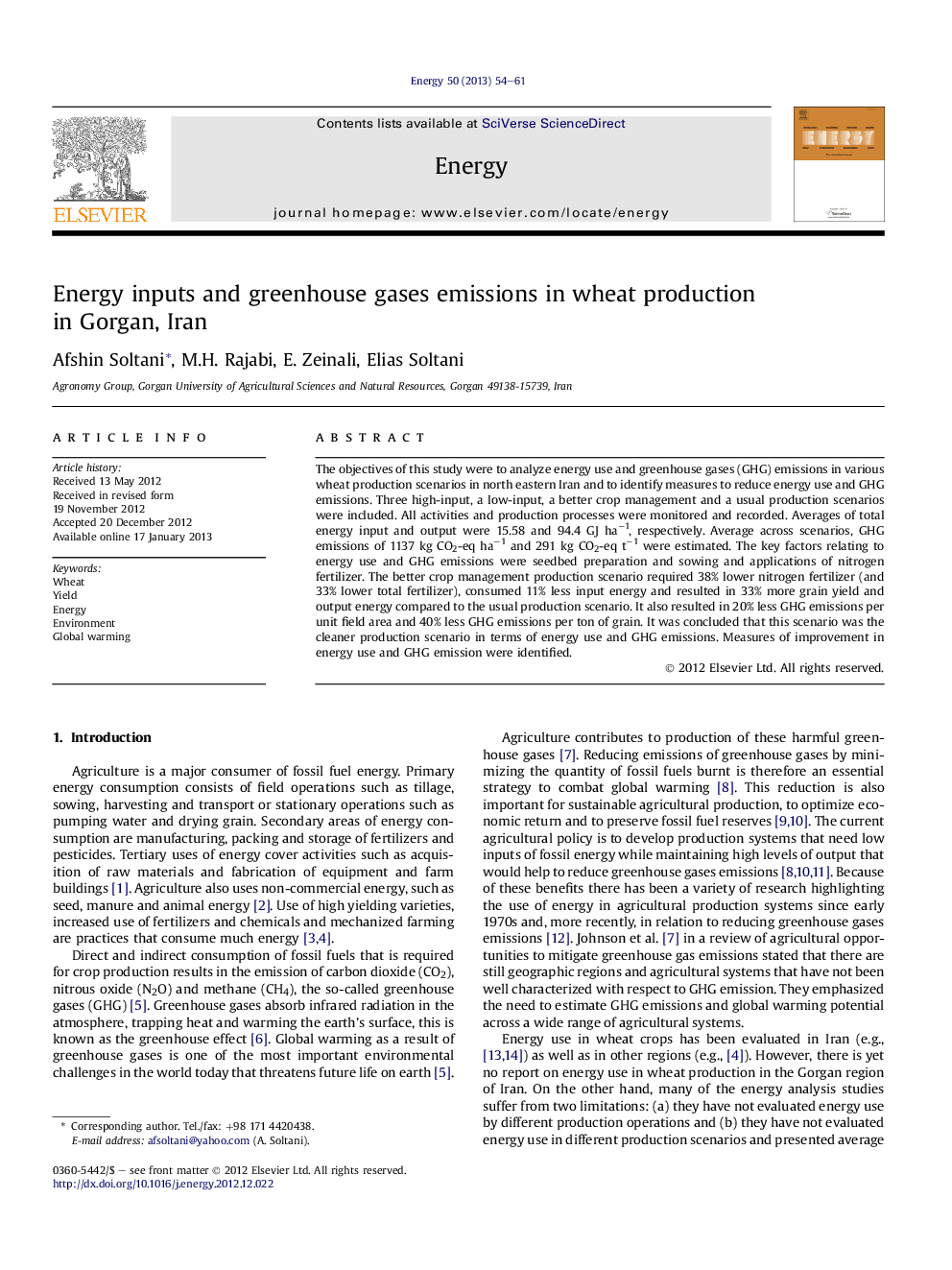| کد مقاله | کد نشریه | سال انتشار | مقاله انگلیسی | نسخه تمام متن |
|---|---|---|---|---|
| 1733216 | 1521496 | 2013 | 8 صفحه PDF | دانلود رایگان |

The objectives of this study were to analyze energy use and greenhouse gases (GHG) emissions in various wheat production scenarios in north eastern Iran and to identify measures to reduce energy use and GHG emissions. Three high-input, a low-input, a better crop management and a usual production scenarios were included. All activities and production processes were monitored and recorded. Averages of total energy input and output were 15.58 and 94.4 GJ ha−1, respectively. Average across scenarios, GHG emissions of 1137 kg CO2-eq ha−1 and 291 kg CO2-eq t−1 were estimated. The key factors relating to energy use and GHG emissions were seedbed preparation and sowing and applications of nitrogen fertilizer. The better crop management production scenario required 38% lower nitrogen fertilizer (and 33% lower total fertilizer), consumed 11% less input energy and resulted in 33% more grain yield and output energy compared to the usual production scenario. It also resulted in 20% less GHG emissions per unit field area and 40% less GHG emissions per ton of grain. It was concluded that this scenario was the cleaner production scenario in terms of energy use and GHG emissions. Measures of improvement in energy use and GHG emission were identified.
► Wheat production scenarios were evaluated for energy use and greenhouse gases emission.
► A better crop management production scenario was the cleaner production scenario.
► Measures to reduce energy use and greenhouse gases emission were identified.
Journal: Energy - Volume 50, 1 February 2013, Pages 54–61